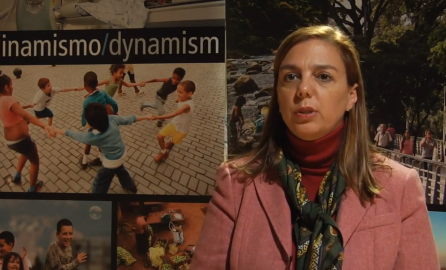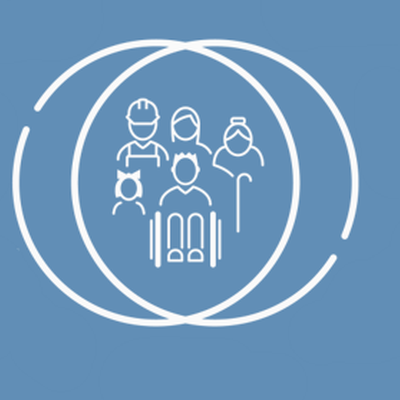Despite its positive development over the last decade, Latin America still faces challenges in overcoming social inequality. To tackle these discrepancies the EU launched in 2005 a programme of cooperation with Latin American Countries: EUROsociAL.
|
17 Latin American countries take part in EUROsociAL, which aims to reduce social and territorial inequalities combining high-level political dialogue with concrete work on reform proposals. Through conferences, study visits, exchange of experiences, technical assistance and pilot projects, 2354 public institutions (1570 from Latin America, 593 from the European Union Member States and 191 from international bodies) have had the opportunity to share with their peers best practices in public policies to increase social cohesion. |
Last March, in Brussels, members of governments from both Latin America and the EU gathered to share achievements and results in overcoming social inequity and debated the future of the cooperation between these two regions. Capacity4dev.eu interviewed stakeholders from four different countries on some of their most successful projects.
Brazil: A House of Rights in the City of God
Brazil is considered an example in the fight against poverty, having exceeded the Millennium Development Goal (MDG), to cut poverty in half before 2015. Nevertheless, as many other Latin American countries, social equity has not been reached. In November 2013, supported by EUROsociAL, the first “Casa de Direitos” (House of Rights) establishment was implemented in the well-known Rio favela “Cidade de Deus” or City of God. The programme aims to bring people closer to the justice system, “but instead of the people moving forward towards the system, it’s the system that will approach people” explained Dr Patrícia Lamego de Texeira Soares, from the Secretaria de Reforma do Judiciário do Ministério da Justiça (Secretariat for Justice Reform, Ministry of Justice).
The concept of “Casa de Direitos” in Brazil isn’t new. In the nineties, this type of programme promoting human rights was already taking place, mainly in the State of Minas Gerais. Carried out jointly by the Federal Ministry of Justice, the Rio Government and the International Development Law Organization (IDLO), the novelty of this initiative comes from the technical support that EUROsociAL is providing. Public experts from both Europe and Latin America are working with Brazilian institutions to draft and to improve public policies that could, if successful, be replicated in other Brazilian states in the near future. “The idea is that we can set up a model of public policy with minimum requirements, and basic services that should be provided to this population that lives in these poor or vulnerable areas,” said Ms Soares.
This programme was inspired by the Argentine model of centres for access to justice. Also present in Costa Rica and Honduras (see below), and coming soon to Paraguay, each house of rights is adapted to the specific realities of the targeted communities. In Brazil, it combines traditional and non-traditional services in order to respond to all demands in an adequate time and manner: “We have a judge, and public defendant offices that will be working permanently there to provide any required service(s) to the population. We have civil registry services as well, for people who have no documents so they can go to the house of justice and obtain all the basic documents that they need,” explained Ms Soares.
The choice to implement this pilot project in the “Cidade de Deus” favela, made famous by the eponymous 2002 movie, isn’t random. While this Rio neighbourhood achieved its pacification in 2009, the presence of state institutions was still weak and could have jeopardised all the work done. “Cidade de Deus is a very difficult neighbourhood, and the services provided there include mediation services, so that people living in this community can go there and find solutions to their disputes,” elaborated Ms Soares. By means of this project, the inhabitants of Cidade de Deus as well as other marginalised communities feel that the government cares and is taking their situation into account. Although it has only been open for a few months, there is already an average of 150 visits per day and the number of visits is continuing to increase.
Under the motto “Your home, your rights “, this project brings a very positive change as the full exercise of citizenship is re-established “I think the basic idea behind the program is that we will strengthen citizenship” concluded Ms Soares “allowing people to know more about their own rights, we’ll have a strong democracy in this country”.
Honduras : Protecting Women’s Rights
In Honduras, 27% of women aged between 15 and 49 have experienced physical violence according to the Demographic and Health Survey of 2011-2012. EUROsociAL, together with the International Development Law Organization (IDLO) and France Expertise International (FEI) are supporting the Honduran government to address domestic violence by centralising and facilitating juridical assistance.
“The Eurosocial II programme contacted the Honduras judiciary power and we agreed on a strategic partnership in the area of justice. We selected as target group women victims and survivors of domestic and family violence and we identified two projects, one for each line of action, access to justice and access to Law,” explained Ms Rosa De Lourdes Paz Haslam, a Magistrate of the Supreme Court of Justice in Honduras.
Regarding the first project, a non-formal justice centre for female victims of gender-based violence opened in March 2014 in Tegucigalpa. As in the Brazilian House of Rights, the victims are approached by the state in order to overcome physical and bureaucratic barriers that separate them from the institutions.
In this centre called “Centro de Atención y Protección de los Derechos de las Mujeres”, these vulnerable women are “given comprehensive attention by all competent institutions in order to avoid re-victimization and to facilitate their access to law”. This initiative allows them to raise awareness, benefitting from a free and immediate technical and legal assistance: “it is about trying to empower them on their rights so that cycle of violence is broken,” pointed out Ms Haslam.
As regards to the second line of action, access to law, a protocol was developed to establish a system of guidelines to improve the response of the different institutions involved in the prosecution and punishment of acts of violence against women. “By means of the two projects”, summarised Ms Haslam “we are having an impact by strengthening that inter-sectoral structure together with civil society, which is very important to the issue of social oversight.”
The programme will enter in its second phase, which means further implementation and monitoring to tailor it better to citizen needs. Once consolidated, it should be replicable to other Honduran cities and at a later stage perhaps even applied to other vulnerable groups such as children who are within this circle of violence.
This collaborative piece was drafted with input from Florian Luetticken and Enrique Martinez with support from the capacity4dev.eu Coordination Team.




Log in with your EU Login account to post or comment on the platform.